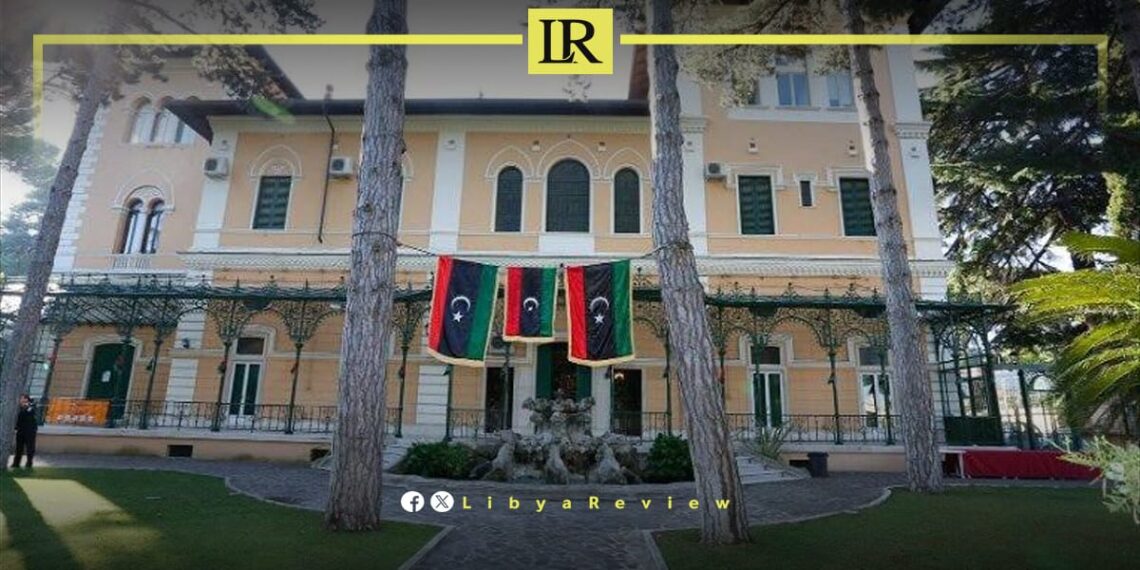A major controversy has erupted in Libya following statements by Libya’s Ambassador to Italy, Muhannad Younes, who told Sada al-Eqtisadeya that the embassy’s funds in Rome have been frozen due to lawsuits and debts accumulated over the years. He clarified that some of these financial obligations date back more than fifteen years and said the embassy is currently working to find a final solution to the crisis.
However, the remarks triggered sharp questions and criticism from political figures and experts, including political analyst Hassan Al-Saghir, who disputed the ambassador’s account. Al-Saghir stated that the embassy’s financial situation was completely different until recently, pointing to official reports he supervised during an inspection and audit in 2012, which confirmed that the embassy had no debts up to May of that year.
According to Al-Saghir, the then-ambassador was dismissed in 2012 over financial violations and other breaches documented in official reports, which were later referred to the Attorney General’s Office. He argued that this proves the embassy was not burdened by debts at the time, raising serious questions about how these liabilities accumulated in the years since.
Al-Saghir went further, asking: “Who arranged these new debts, and what has the current ambassador done in the two and a half years since assuming office in April 2023?” He suggested that the period of Younes’s leadership has shown little progress in addressing or containing the embassy’s growing financial crisis.
Observers warn that the case highlights a sensitive issue regarding the management of public funds within Libya’s diplomatic missions abroad. Mounting embassy debts not only damage Libya’s international reputation but also expose its overseas assets and funds to legal complications such as seizures and court-enforced collections.
The controversy comes at a time when Libya urgently needs to strengthen its diplomatic presence and repair its global image. The debt issue is increasingly seen as a litmus test of transparency and accountability, raising concerns about the role of oversight bodies in monitoring embassy performance and ensuring proper management of state resources.
With conflicting narratives between the current ambassador, who insists the debts are longstanding, and Al-Saghir, who maintains the embassy was debt-free until 2012, the matter remains unresolved. Many are now calling on official authorities to disclose the full truth, assign responsibility clearly, and safeguard Libya’s public funds and foreign interests.


